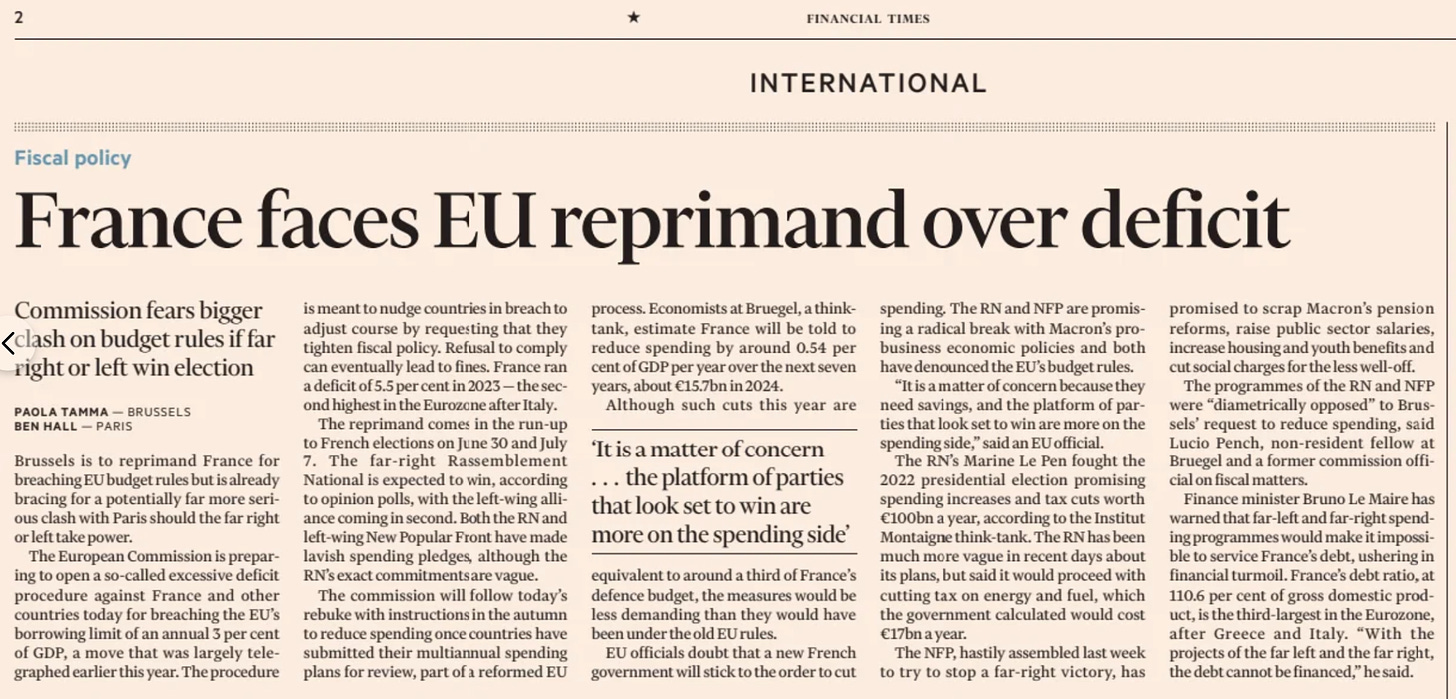The Zero Sovereignty System
Source

The liberal elite who are deploying this strategy are as wily as they are cynical. But it is by no means clear that they understand the ramifications of what they are doing. Without the capacity to borrow a modern government cannot achieve much of anything. And what the liberal elite are putting in place is a clear system: if you try to govern outside of the strict liberal framework, various small, but powerful institutions will be deployed to destroy your capacity to govern. Ultimately, this concentrates actual power in the hands of a very small group of financial journalists, market participants and, most importantly, central bank technocrats. This is the Zero Sovereignty System. It is very dangerous as it rests on the assumption that these people can govern in a way that democracy cannot.
One is reminded here of the very late Soviet Union. By the 1980s, the nomenklatura—that is, the Communist Party elite—were ruling merely for the sake of ruling. Few of them really believed in communism, just as few liberals today appear to believe in liberalism. This was widely understood by the public in these countries. The system—arguably more stable in many ways than the liberal societies today—was extremely fragile because of this. The Soviet Union itself tried reforms but ultimately collapsed. Those who pushed for the reforms, however, were widely seen as well-meaning people. But in a few countries the nomenklatura held on to the bitter end, deploying ever more desperate maneuvers to maintain power. Those were the societies that saw the most instability as the Soviet Union collapsed. The liberal elite today would be wise to pay attention to the lessons of that era.